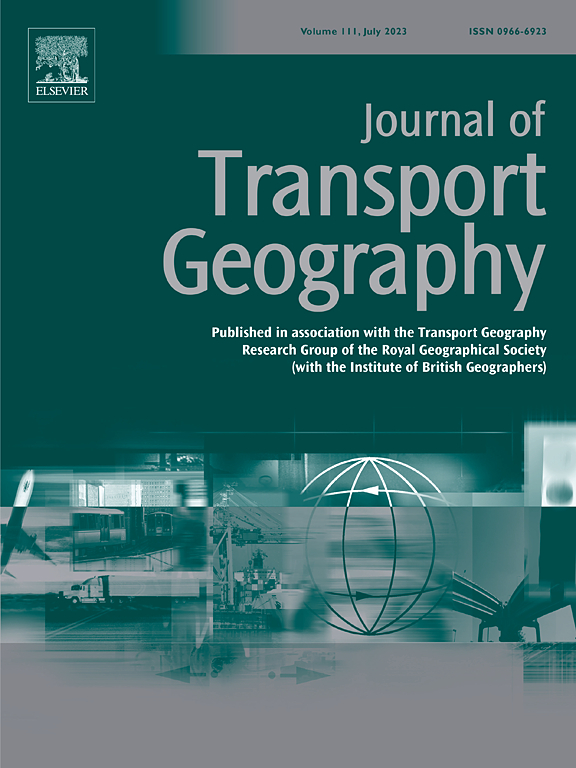从区域视角发现就业与住房关系的时空特征:全国性研究
IF 5.7
2区 工程技术
Q1 ECONOMICS
引用次数: 0
摘要
区域化的最新发展重新定义了职住关系的概念,需要从区域视角进行重新审视。本文基于 49 个月的手机信令数据,研究了全国 2258 个衢县(城市区或农村县)职住关系的时空特征及其与区域流动和区域结构的关系。研究结果表明,不同类型城市的职住关系存在差异,并具有季节性周期和年度性趋势,反映了人类活动的节奏和发展。职住关系的时间变化受区域流动性的影响,较大的城际出行量导致较低的平衡水平。就业与住房关系的空间变化受区域结构形式的影响,这可以用齐普夫缩放指数来衡量。两极分化程度较高的地区平衡程度较低,但欠发达地区除外。就业-住房关系存在一个潜在的拐点,该拐点与其长期平均值相似,反映了区域市场的均衡。本文充分考虑到区域化世界的理论和实践需求,提供了一项大数据驱动的全国就业-住房研究,为现有文献做出了贡献。研究结果推进了我们对就业-住房宏观关系的理解,并为全球各国政府提供了政策建议。本文章由计算机程序翻译,如有差异,请以英文原文为准。
Discovering temporal-spatial features of jobs-housing relationship from a regional perspective: A nationwide study
The recent developments in regionalization have redefined the concept of jobs-housing relationship, calling for reexaminations from the regional perspective. This paper studies the temporal and spatial features of jobs-housing relationship and their relations with regional mobility and regional structure in 2258 Quxians (urban districts or rural counties) across China based on 49 months of cellular signaling data. Results show that jobs-housing relationship differ between city types and have seasonal cycles and yearly trends reflecting the rhythm and development of human activity. The temporal variations in jobs-housing relationship are affected by regional mobility, and larger intercity travel volume leads to lower balance level. The spatial variations in jobs-housing relationship are influenced by the form of regional structure, as measured using the Zipf scaling exponent. More polarized regions are less balanced with exceptions in underdeveloped regions. There is an underlying inflection point in jobs-housing relationship that is similar to its long-term average value and reflects regional market equilibrium. This paper contributes to existing literature by providing a big-data driven nationwide jobs-housing study fully aware of the theoretical and practical needs of a regionalizing world. Findings advances our understanding of macroscopic jobs-housing relationship, and offers policy suggestions for governments across the globe.
求助全文
通过发布文献求助,成功后即可免费获取论文全文。
去求助
来源期刊

Journal of Transport Geography
Multiple-
CiteScore
11.50
自引率
11.50%
发文量
197
期刊介绍:
A major resurgence has occurred in transport geography in the wake of political and policy changes, huge transport infrastructure projects and responses to urban traffic congestion. The Journal of Transport Geography provides a central focus for developments in this rapidly expanding sub-discipline.
 求助内容:
求助内容: 应助结果提醒方式:
应助结果提醒方式:


